Detailed gallery: A closer look at the unreleased Factor Ostro VAM
Simon Clarke's brand new aero bike from the Tour Down Under
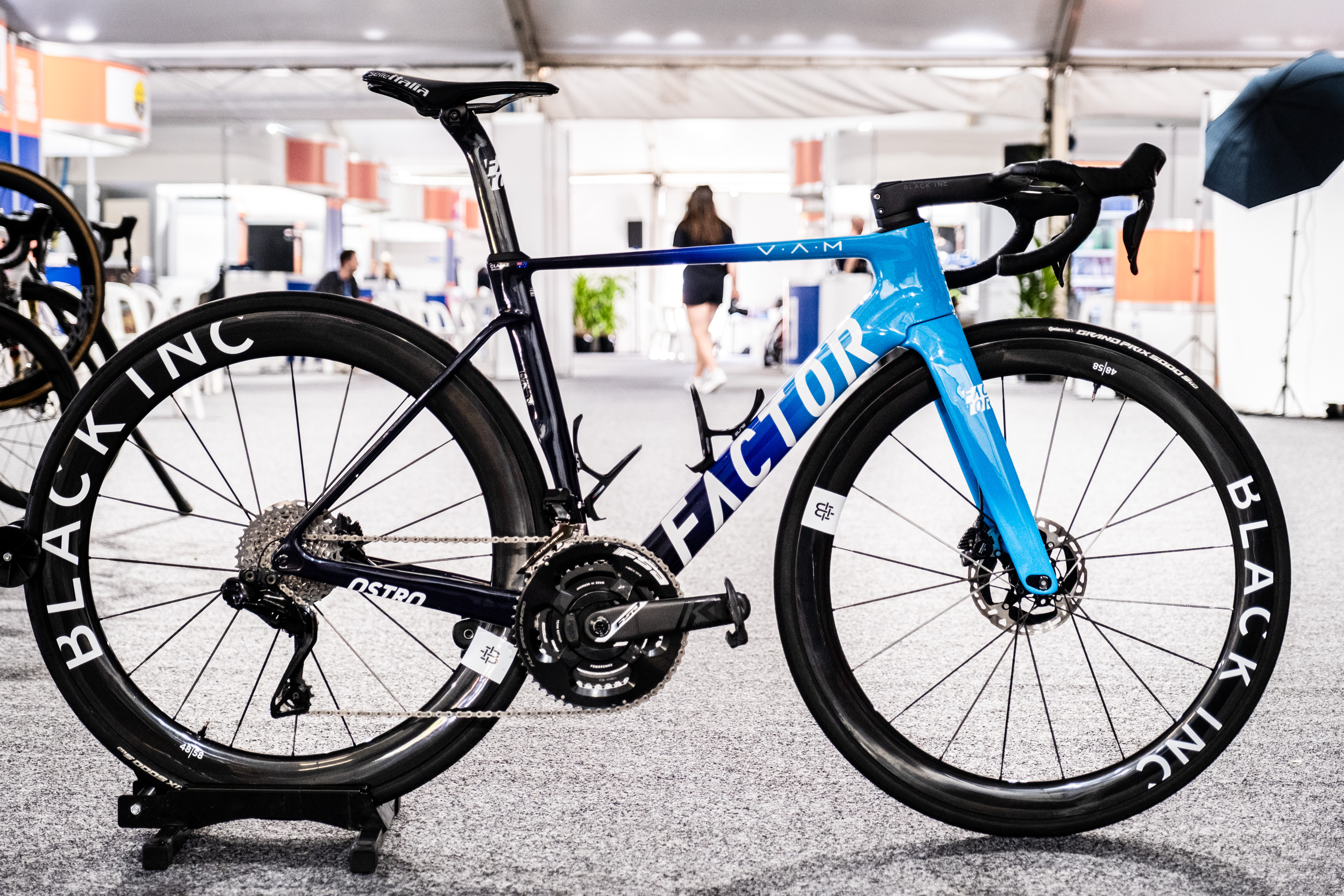
Just last week, Israel Premier-Tech's star climber Simon Clarke debuted a brand new, as-yet unreleased Factor Ostro aero bike at the Australian National Road Race Championships.
Thanks to a social media post from his local chain waxing provider of all people, we've already had a reasonably good look at the new model, which allowed us to make some assumptions about the new bike's intentions, but there were a few questions left unanswered, such as seatpost clamping, headtube shape and more.
Luckily, those questions and more are about to be answered, because we've got a full detailed gallery of the new bike lined up.
With the WorldTour season about to kick off with the Tour Down Under, Cyclingnews has eyes on the ground in Adelaide, and while mechanics are dialling in the bikes and riders are fine tuning their legs, we got up close with the new Factor Ostro for a proper look.
Naturally, there are plenty of aero optimisations on offer, but like other bikes launched in recent months, most of those are focussed at the front, while the rear of the bike seems to be a little more focussed on keeping the weight down. That's not all though; we've also spotted a hidden chamber, which we'll explain when we get there.
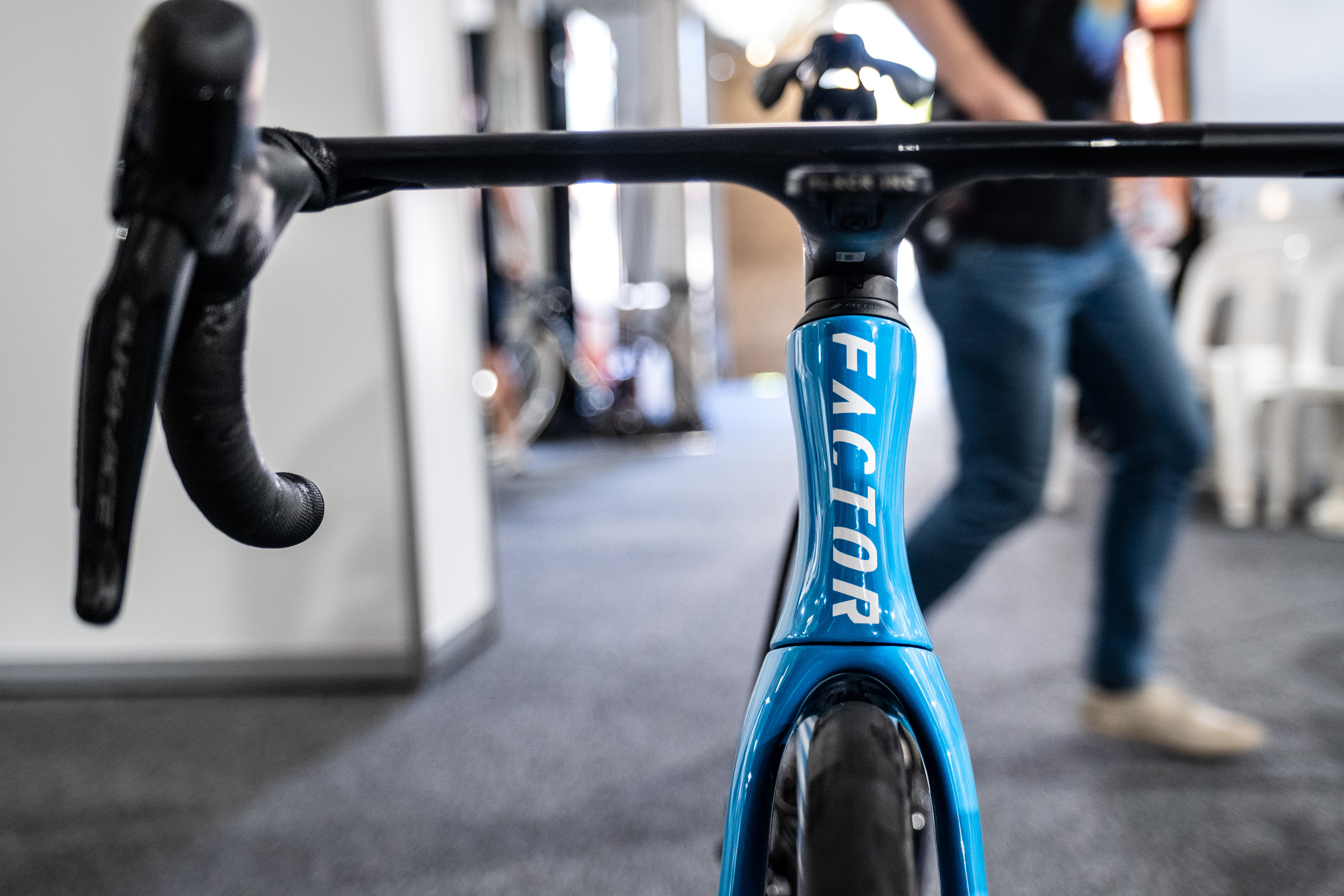
Starting up front, and the obvious thing to note is that like most race bikes nowadays, there are no cables to be seen at the cockpit. The bar/stem itself appears unchanged from the VAM cockpit found on the outgoing Ostro, featuring tops that are deeper (and thus, more aero) than the similarly integrated version on the O2 VAM.
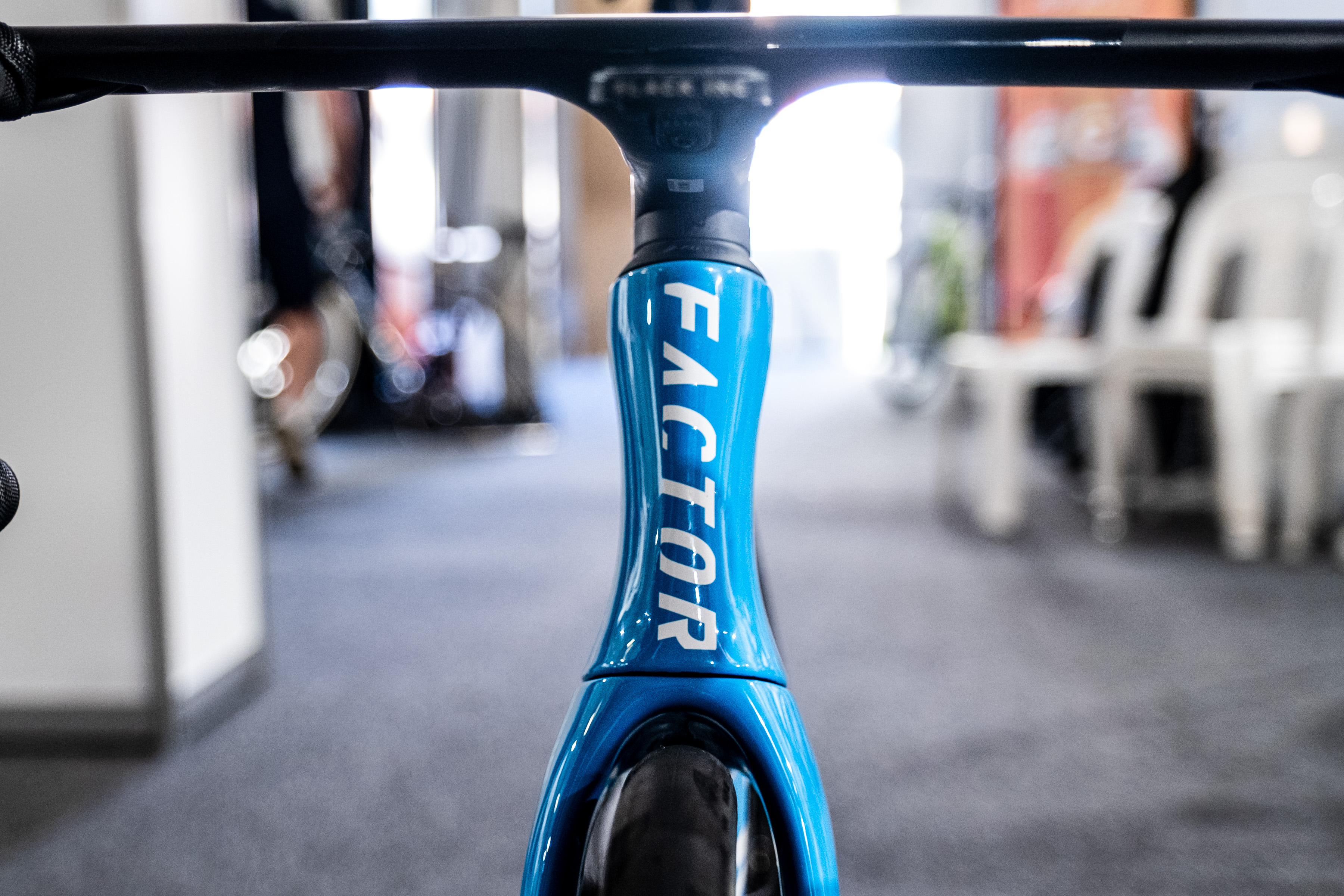
The other thing of note is the heavily sculpted hourglass shape of the head tube, which it's safe to assume is slightly faster aerodynamically, given the reduction in frontal surface area.
Get The Leadout Newsletter
The latest race content, interviews, features, reviews and expert buying guides, direct to your inbox!
Given the side-on profile of the bike shows how deep the head tube is, it's clear that this is a bike chasing aero gains. That's not exactly a surprise given the Ostro has long been Factor's more aero machine while the O2 Vam chases weight savings, but Factor has no intentions of following the Specialized Tarmac/Venge approach of blending the two race bikes into one.
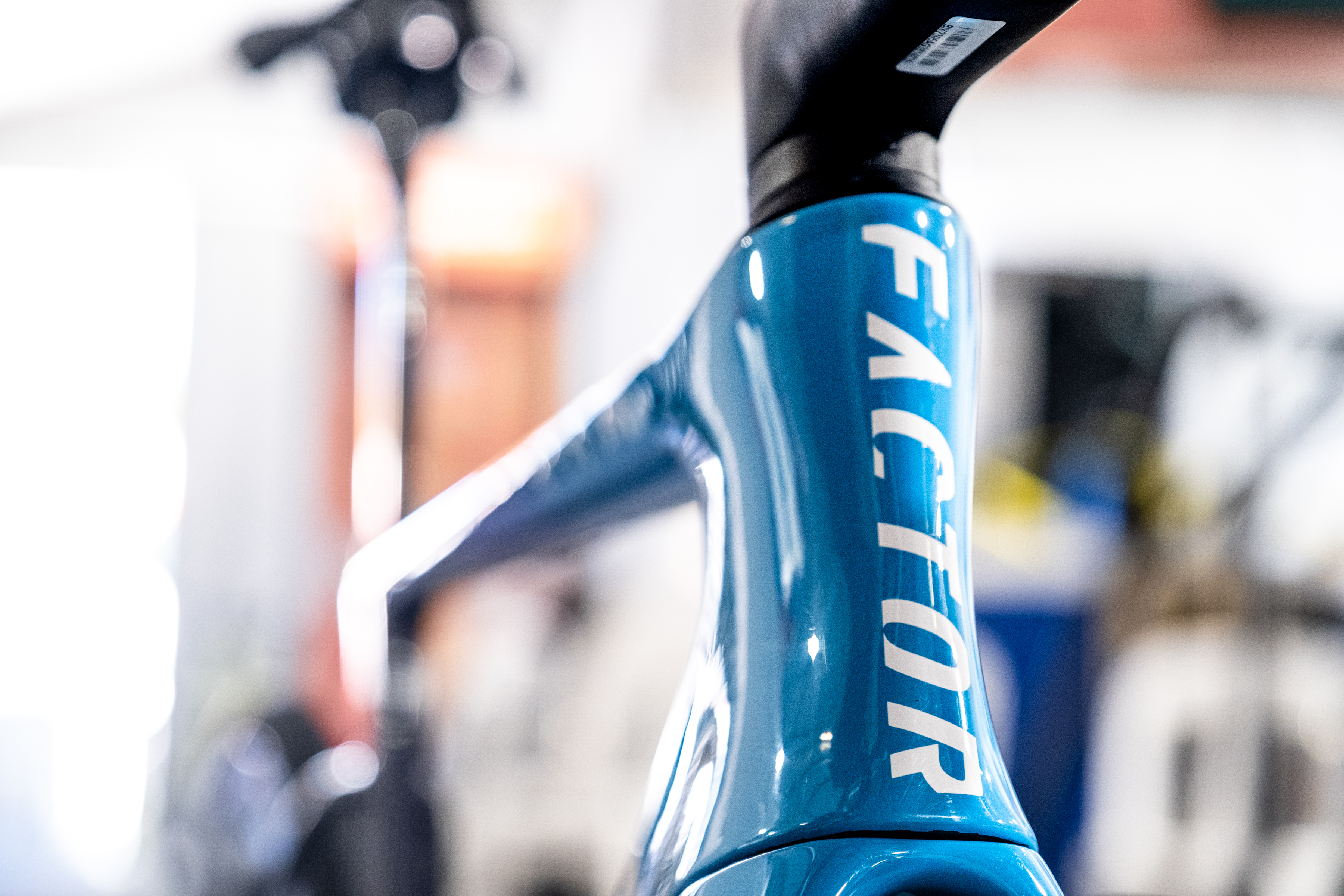
The Factor logo on the head tube has been replaced by a vertical 'Factor' wordmark. It's unclear whether this will continue onto consumer-facing bikes, or whether it's a pro paint job option only.
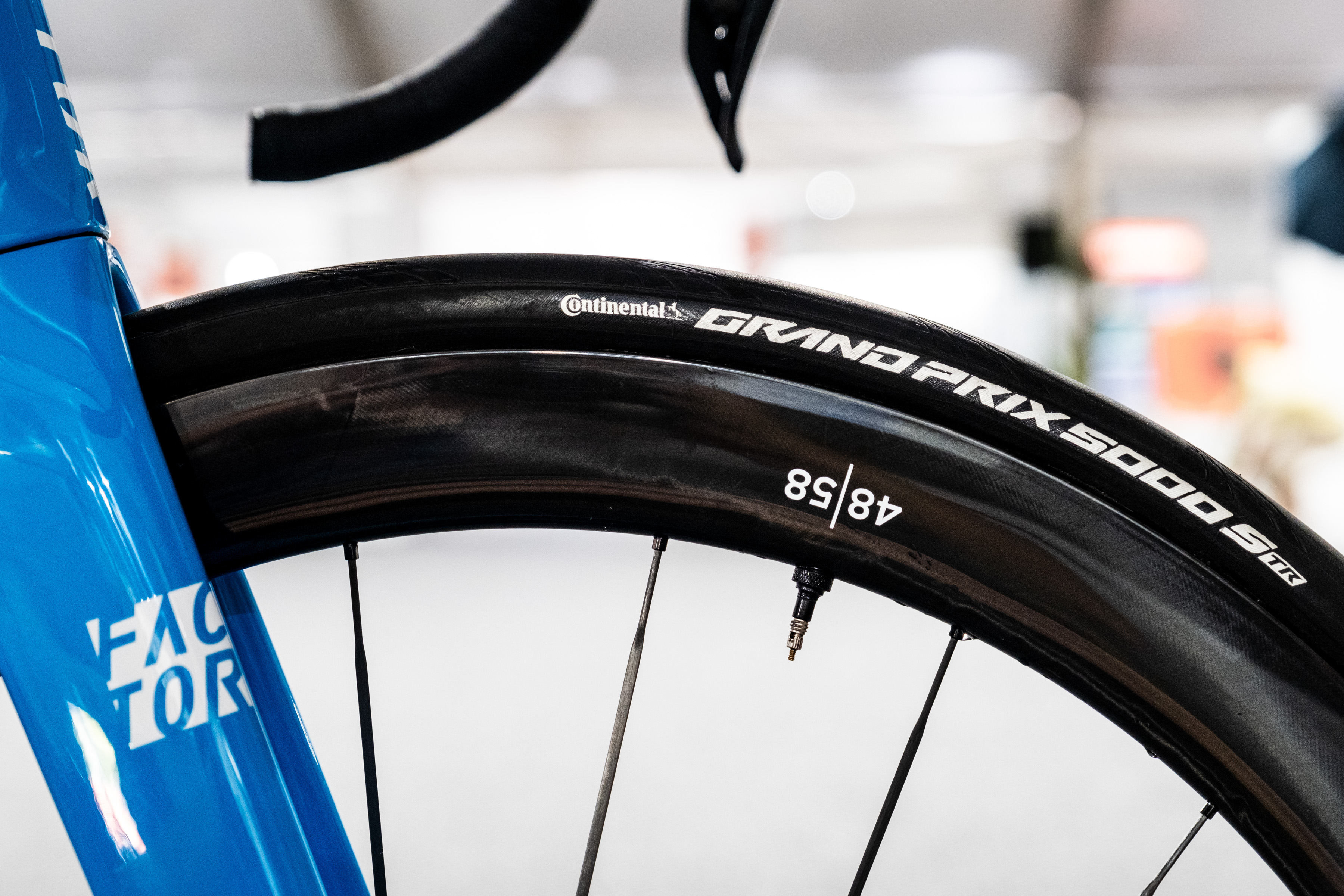
The frame isn't the only thing that's new. These wheels from Factor's component subsidiary Black Inc are also yet to be released. The 48/58 graphic tells us that these are 48mm deep at the front and 58mm at the rear.
Not all brands use mismatched depths like this, but it's an approach that has come and gone over the years. The idea is that the shallower front wheel is more stable in crosswinds, while the rear wheel is deeper for greater aerodynamic benefit.
Their width is uncertain, but given Factor's lightweight 28/33 wheels are 23mm wide internally, we expect to see at least that here. Those wheels also bore CeramicSpeed bearings, so that's likely here too.
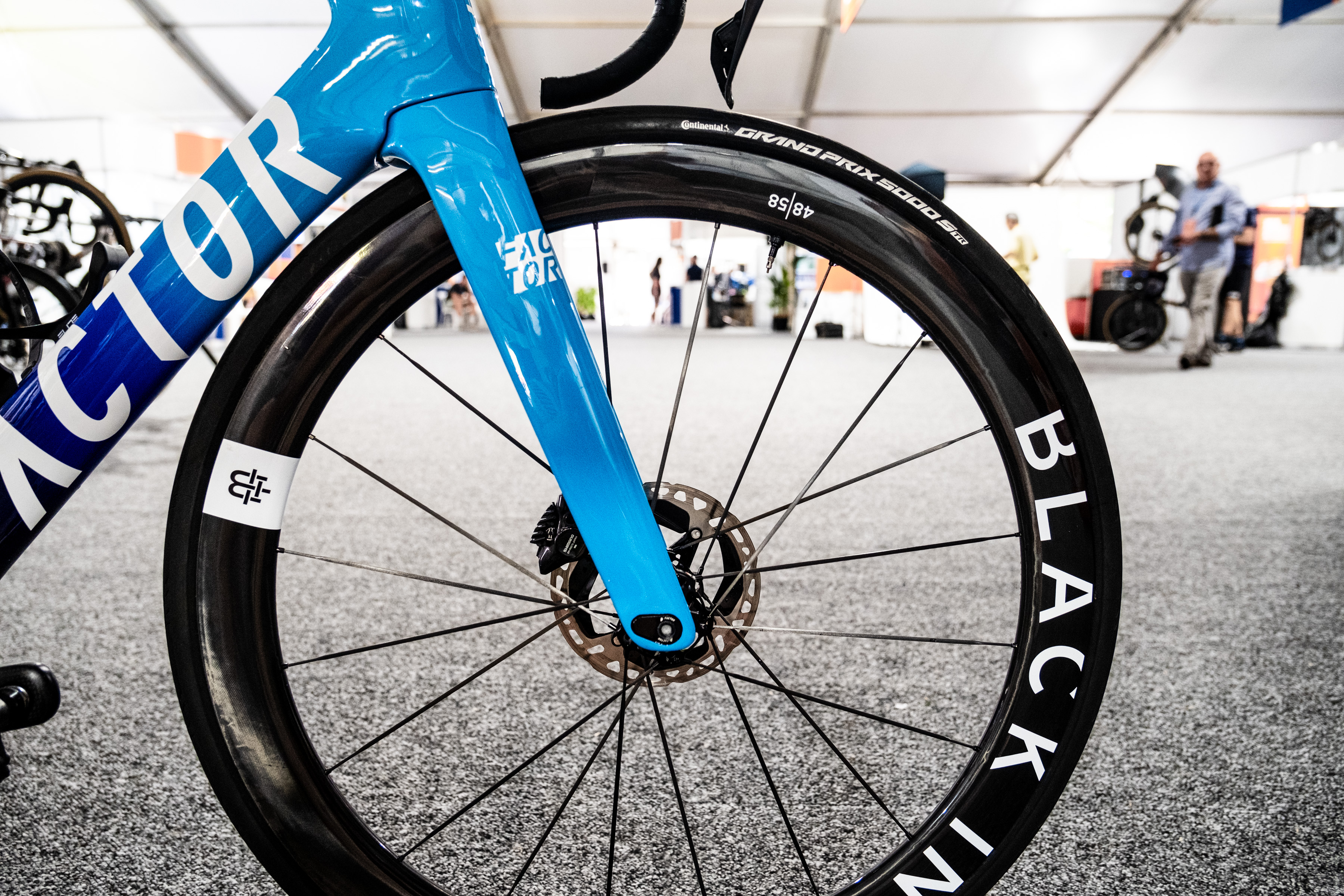
Here's a wider angle of those wheels. The large Black Inc graphic drew some criticism from commenters on our recent story about the bike breaking cover, but some will love it.
Also notice the deep fork legs, which further affirm that the front of this bike is all about aero.
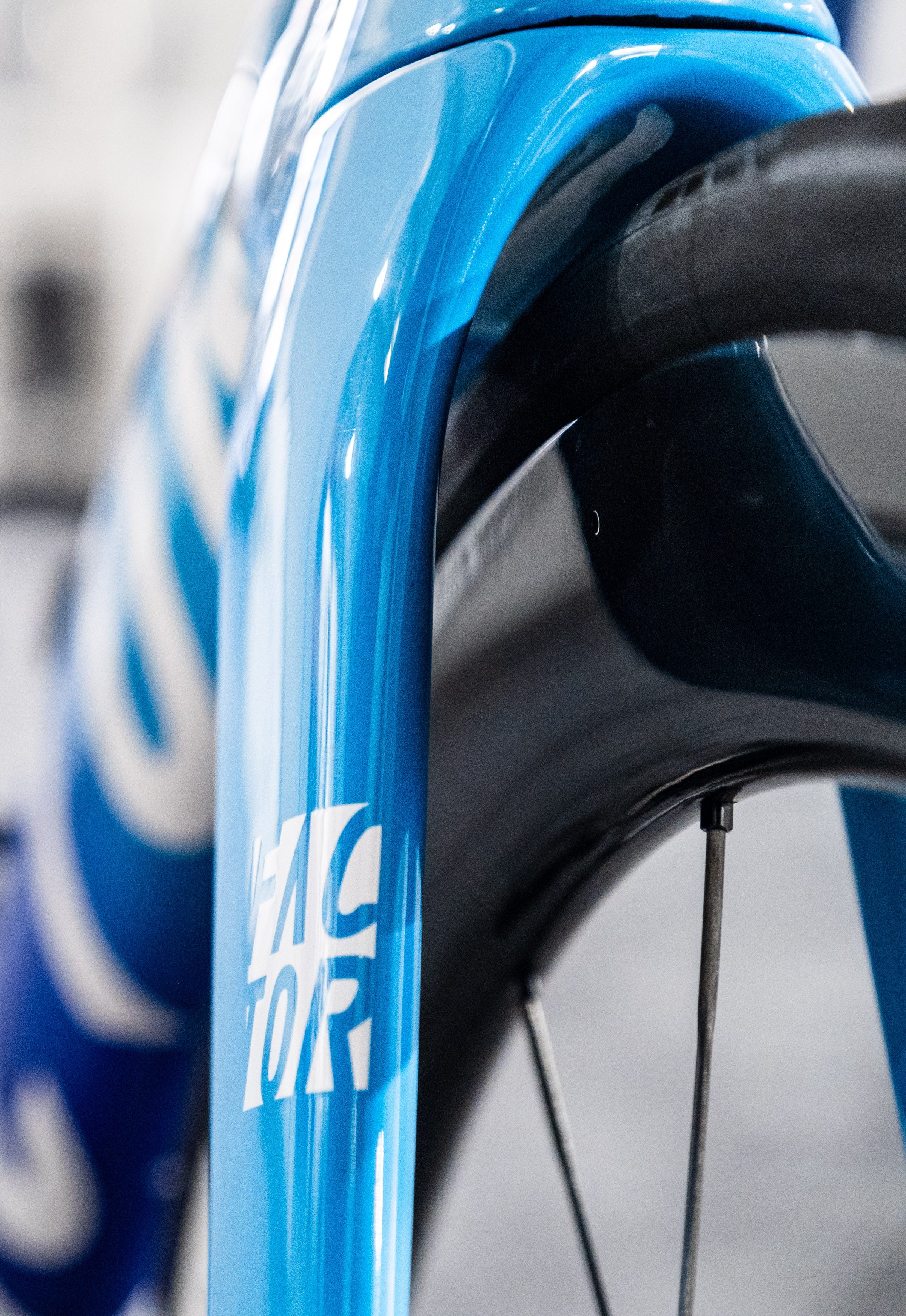
The exact tyre clearance is unknown and unfortunately we didn't have any way to measure it here. With that said, an eyeball test and some rough assumptions lead us to believe the clearance will be 32mm. These Continental GP5000 S TR tyres, which we believe were 28mm, blew up quite wide on the new wheels, and there was a good amount of space to go wider. We doubt that Factor would go any wider than the 32mm clearance you get on the O2 VAM, but having eyeballed it we'd be surprised if it was less than that.
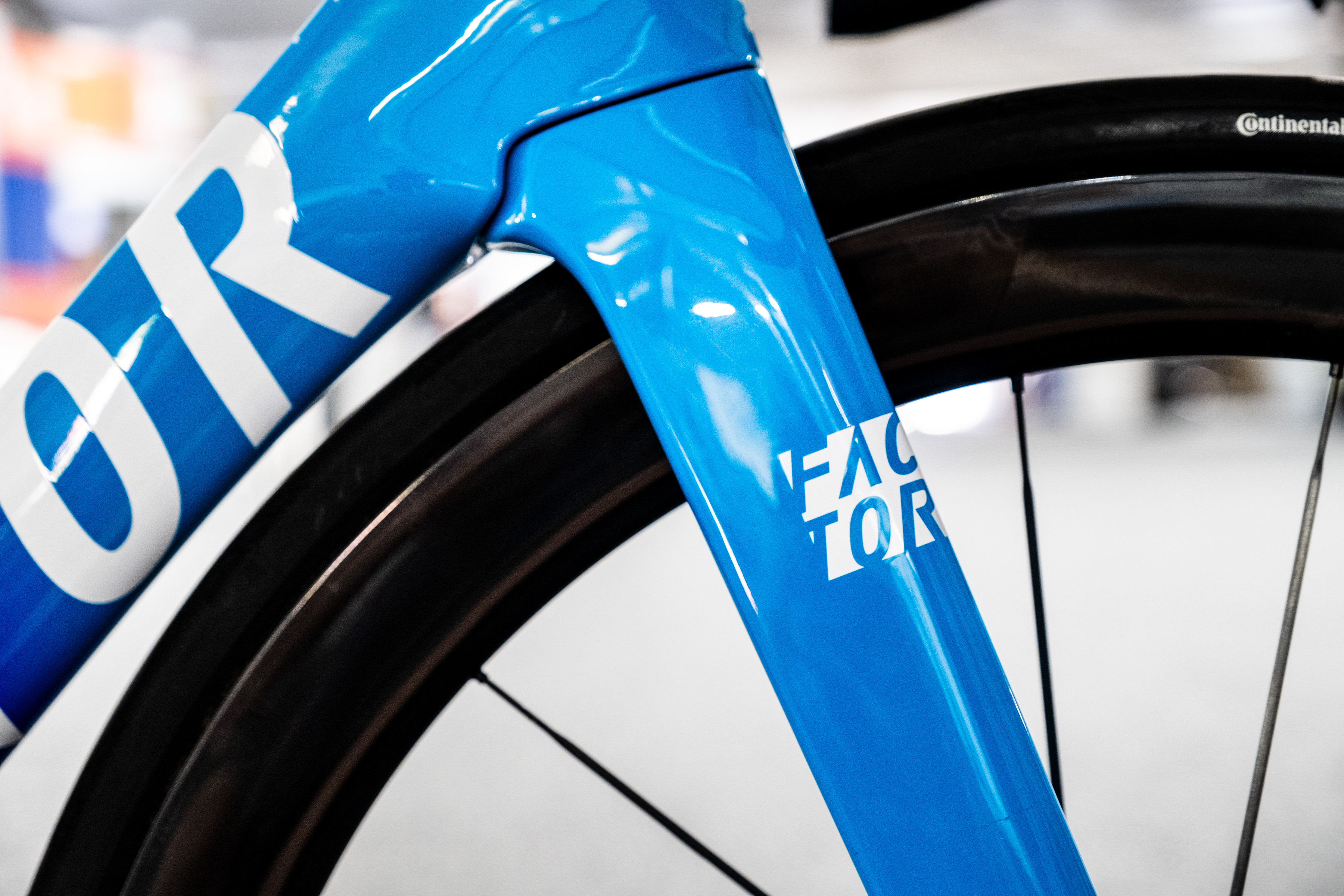
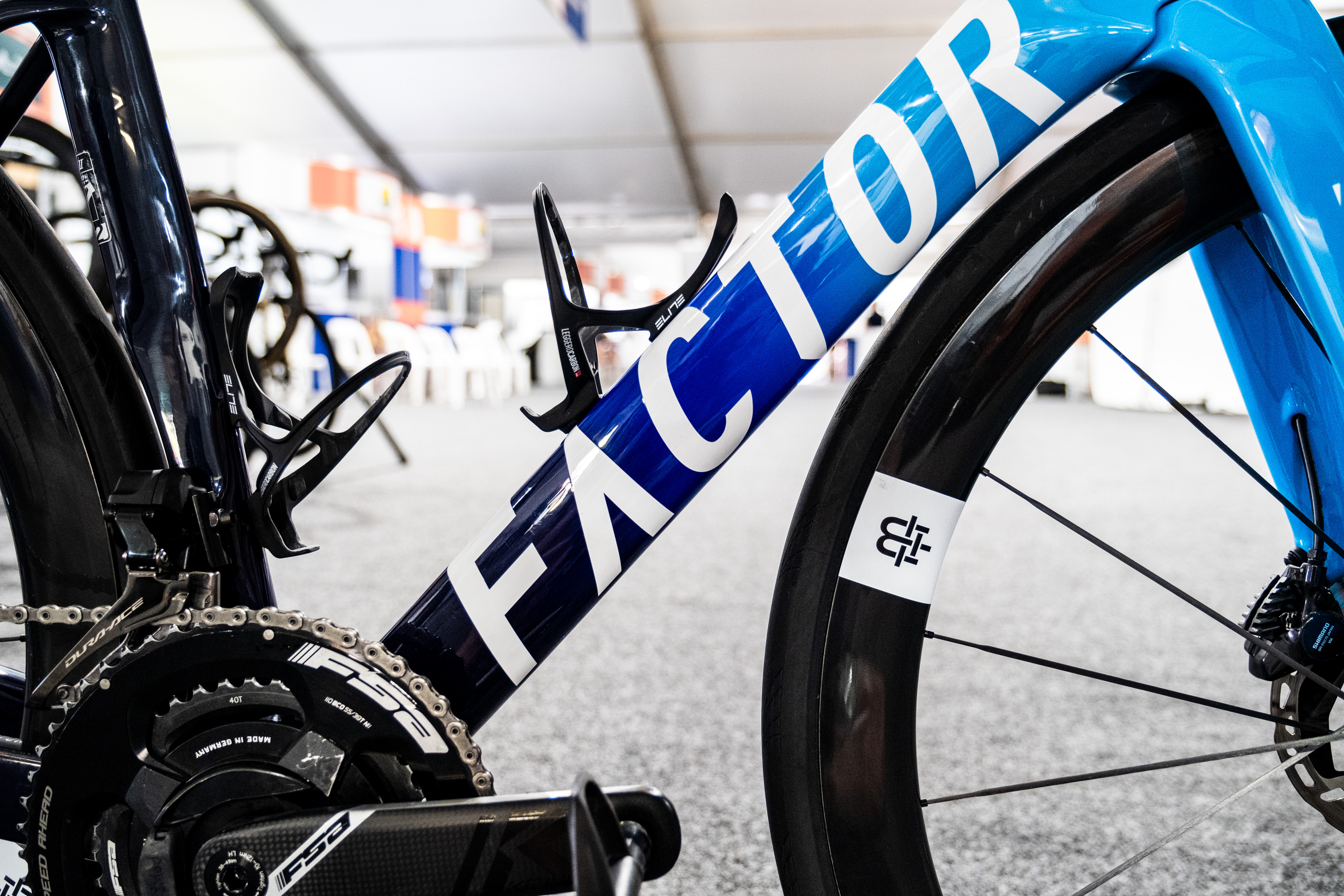
The way the fork integrates with the headtube is neat, with a slight flare outwards as it moulds into the downtube. Unlike some frames, there's no cutout in the downtube itself for the front wheel.
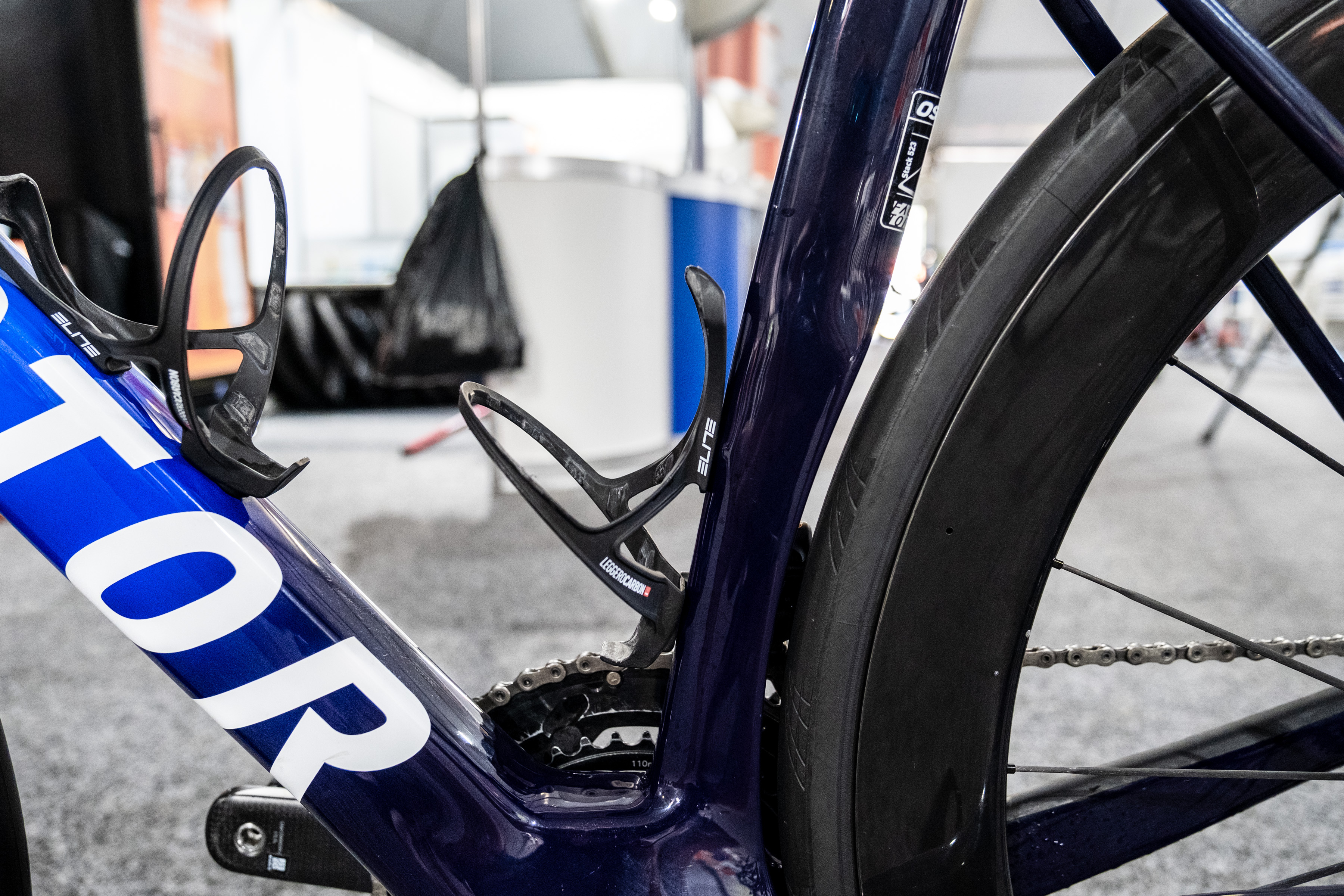
There is, however, a cutout for the rear wheel into the back of the seat tube, which as my colleage Will pointed out in our original story, suggests a possible change in the geometry, perhaps even a shortened wheelbase.
Also seen in this image are Clarke's bottle cages, the 17-grams-per-piece Elite Leggero Carbon. It also appears that there are only two bottle cage bolts on the down tube, whereas some brands opt for a third to give riders the choice of a higher, more accessible position or a lower more aero position.
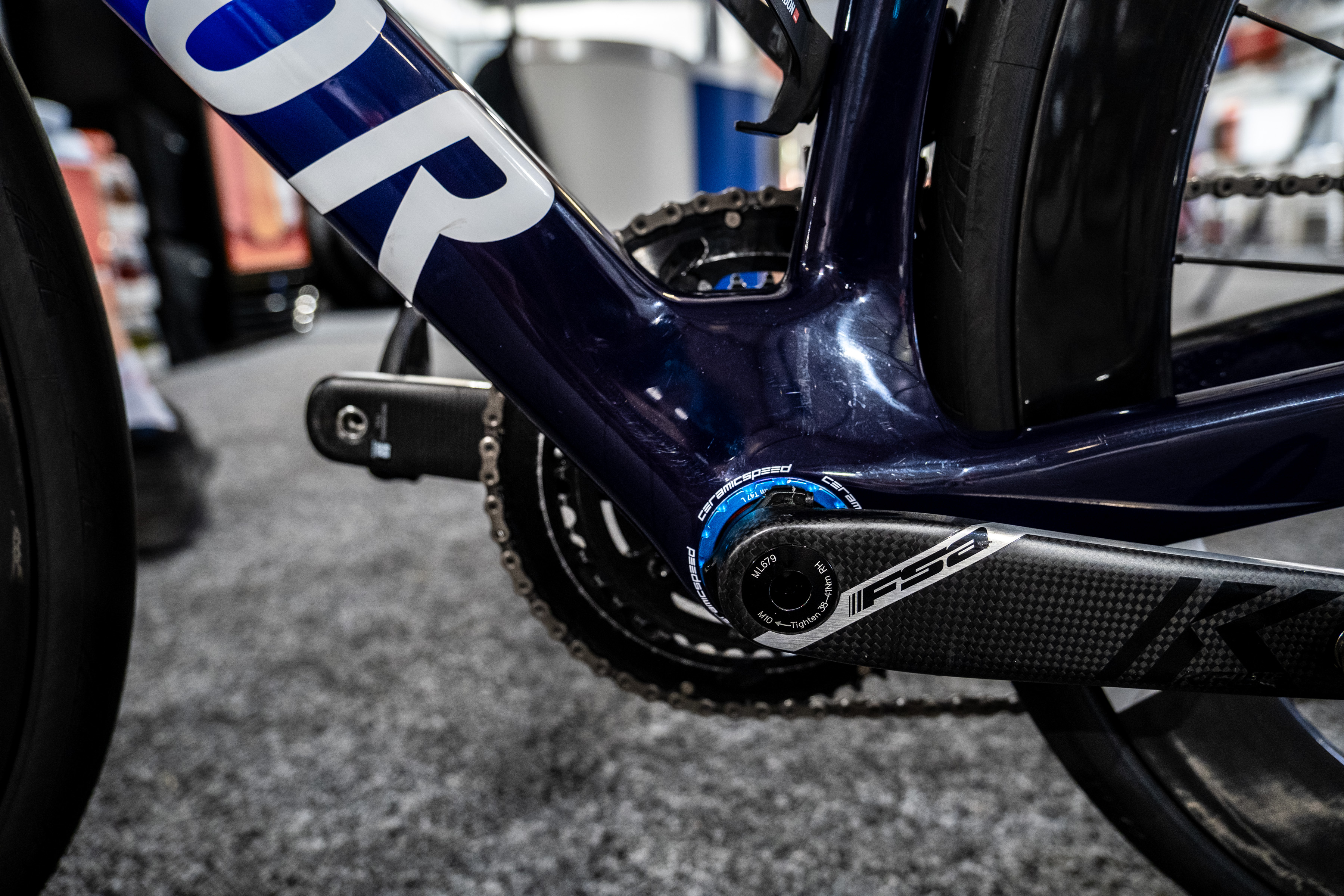
As per the O2 Vam, Factor has integrated CeramicSpeed bearings throughout, as evidenced here by the blue preload ring on the bottom bracket.
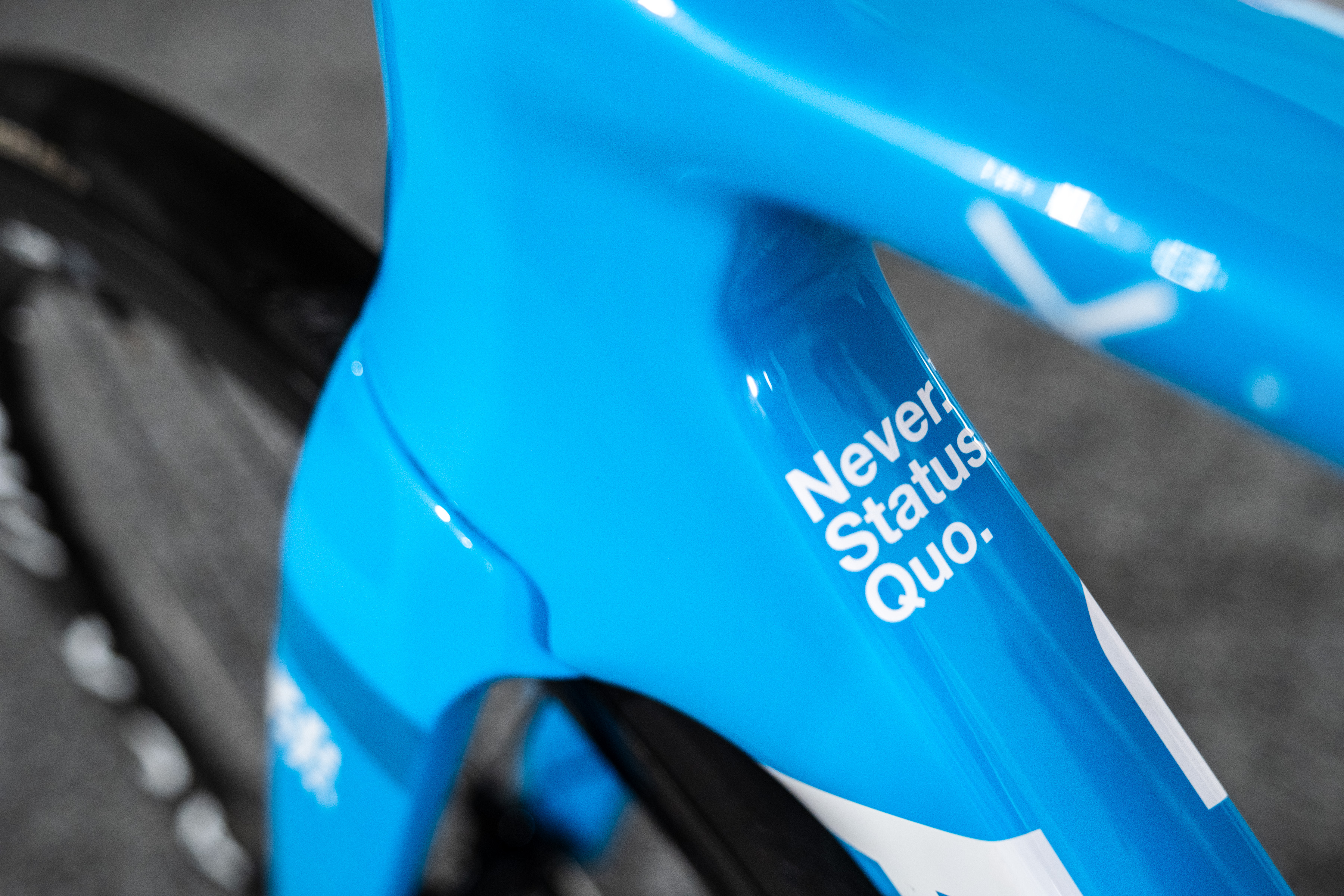
This image shows Factor's slogan, "Never Status Quo," on the downtube, but it also highlights the shape of the back of the head tube. There's an obvious squaring off to the back of the tube profile, but it's nowhere near as pronounced as the O2 Vam.
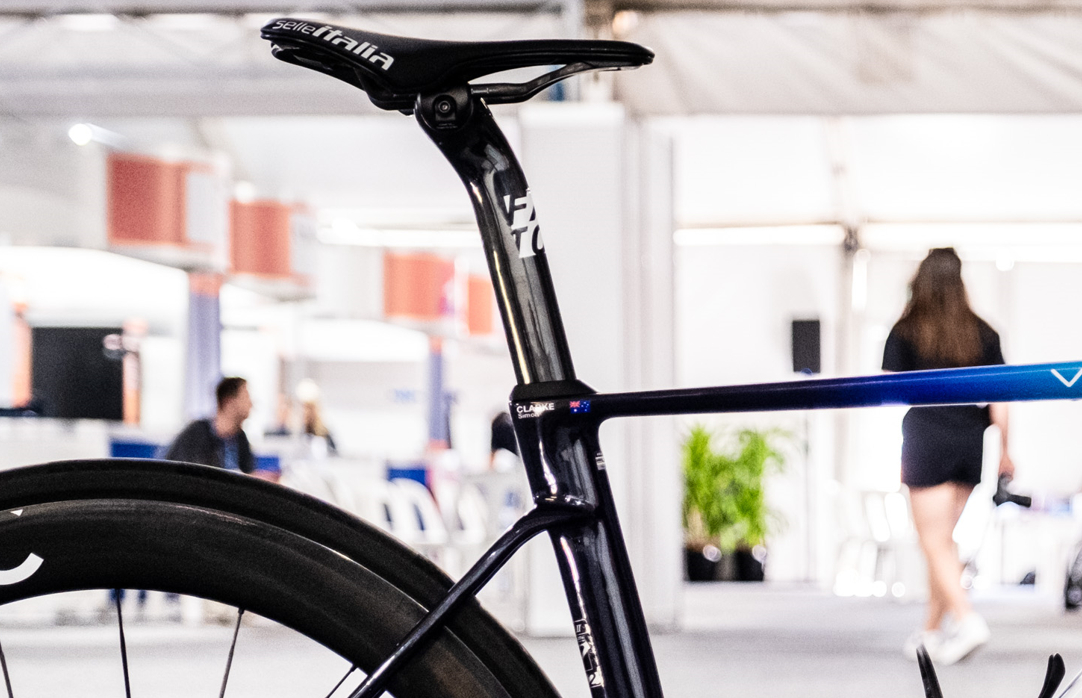
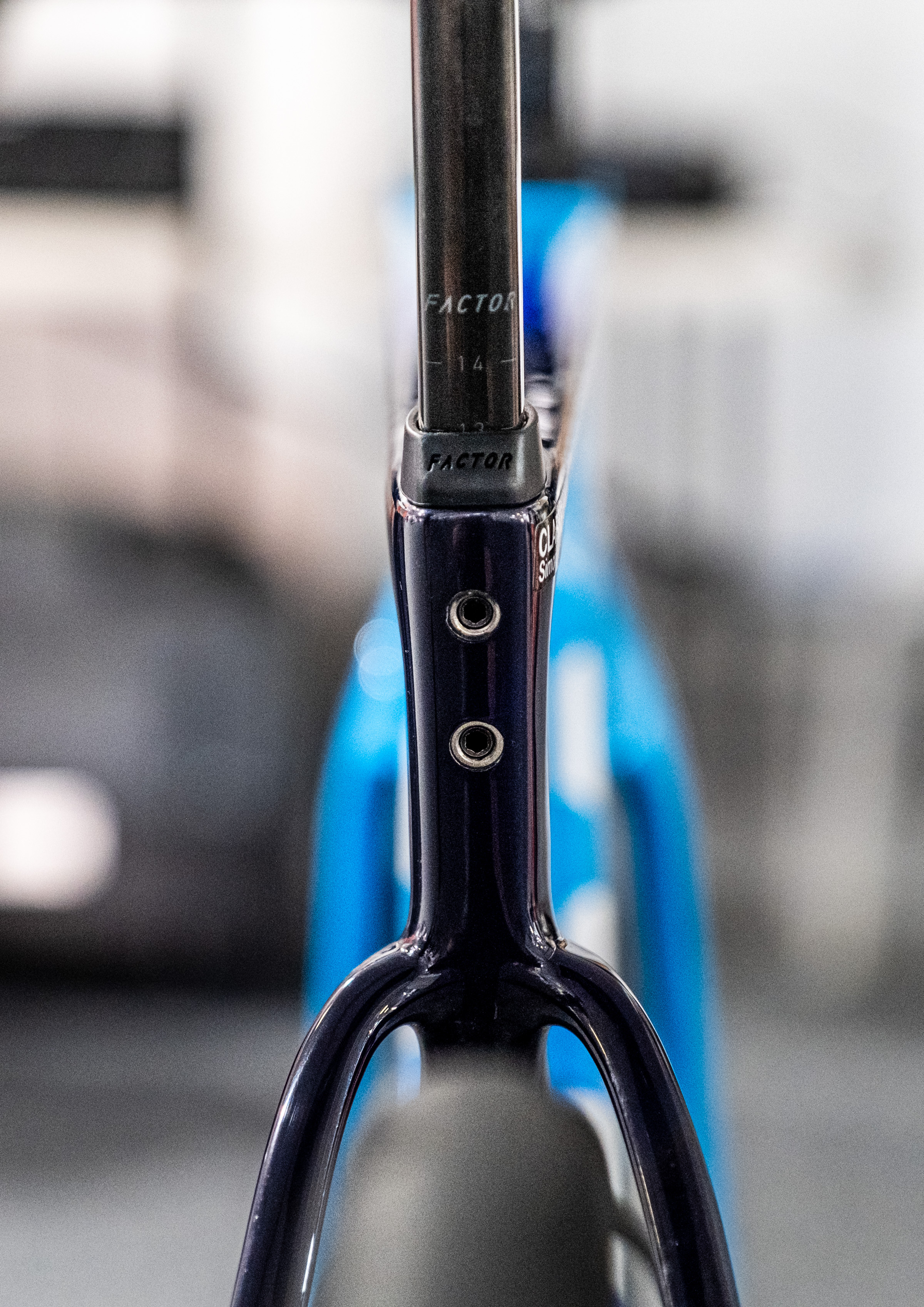
One of the big questions left unanswered from the bike's original appearance was the seatpost clamp and how it would work. The outgoing Ostro used a wedge clamp that was accessed from a triangle cut-in between the top tube and the seat tube. The O2 Vam, meanwhile went with a seatmast and a topper, with a loose clamp that sat into a recess between the two.
The new Ostro seems to sit somewhere between the two approaches. It uses a standard (albeit D-shaped and likely proprietary) seatpost, but the triangular cut in is gone. We weren't allowed to take it apart to see inside, but we believe the new clamp uses a similar expanding wedge to the O2 Vam, which slots in behind the seatpost itself, and is accessed using two hex bolts through holes in the frame.
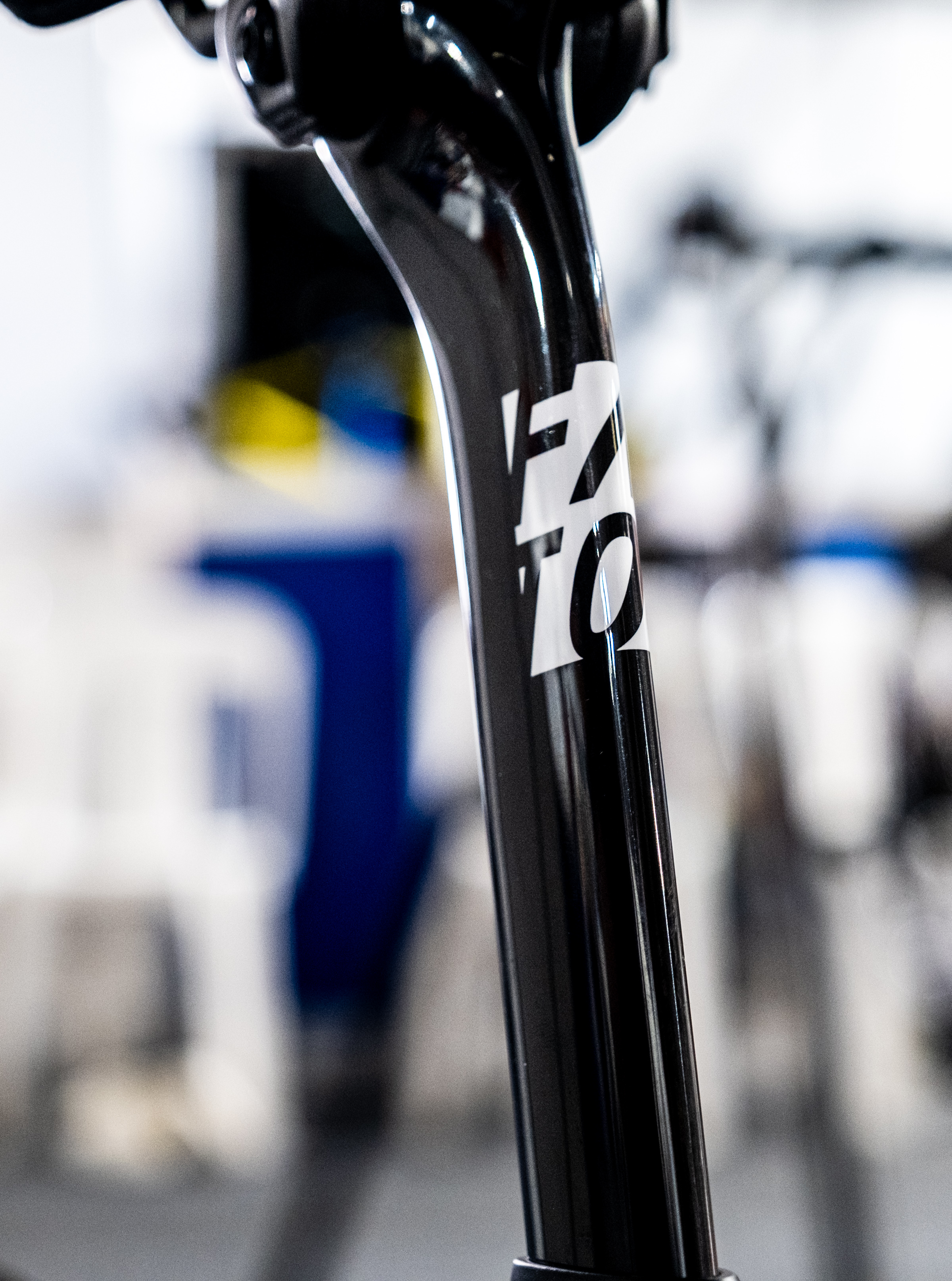
Despite the super deep headtube and obvious aero attention up front, the seatpost itself actually appears slightly shallower than the outgoing Ostro.
This approach of aero up front and lightweight at the back is becoming more and more common among top tier bikes. The thinking is that aero changes at the front of the bike, which hits clean air, make a much greater difference to the overall aerodynamic performance of a bike when compared to aero changes at the rear of the bike, which typically only interact with broken or turbulent air.
While deeper tubes (or seatposts) at the rear of the bike would still be slightly faster than shallower tubes, manufacturers are preferring to accept the small aero penalty in favour of chasing other benefits, such as improved ride quality and reduced weight.
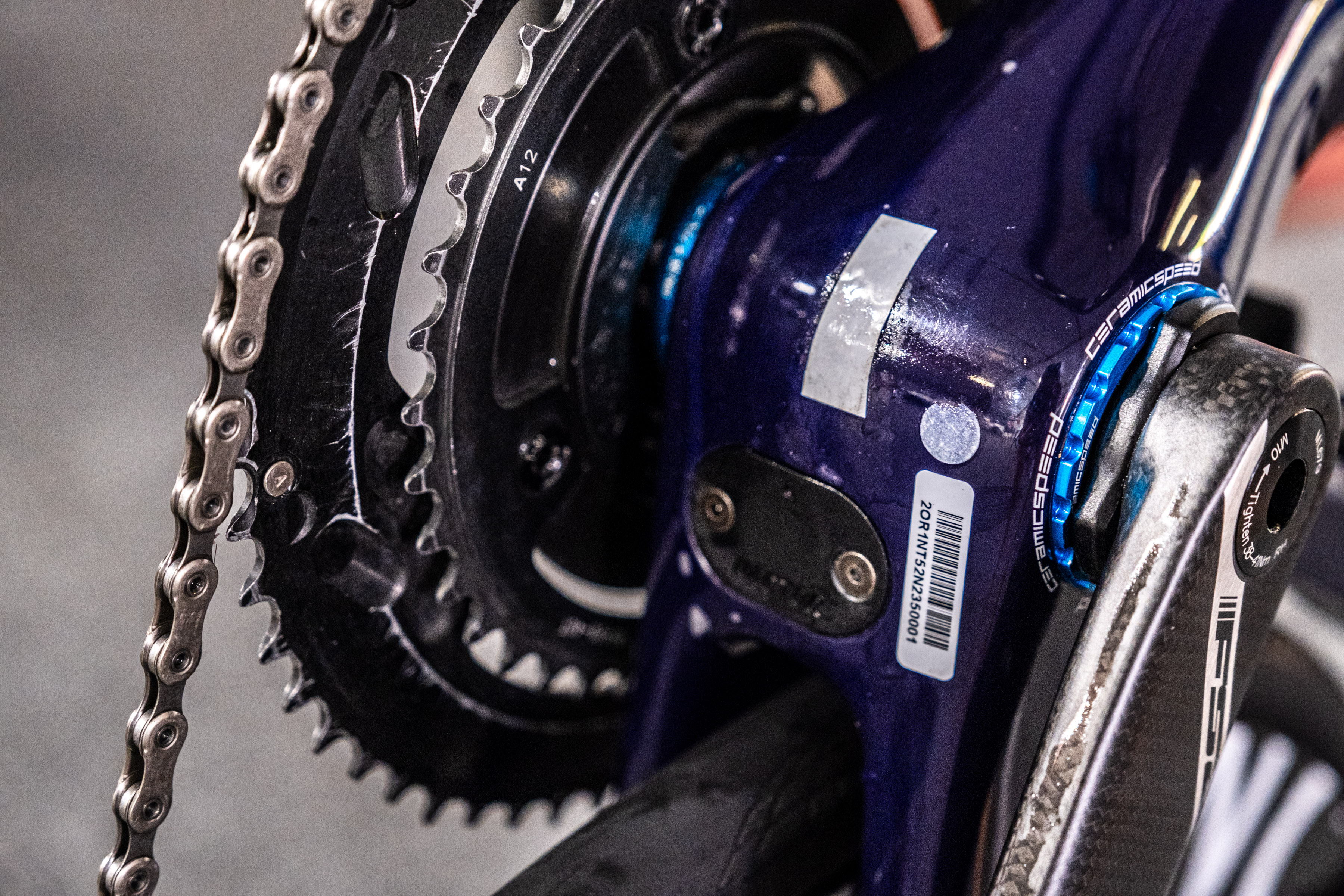
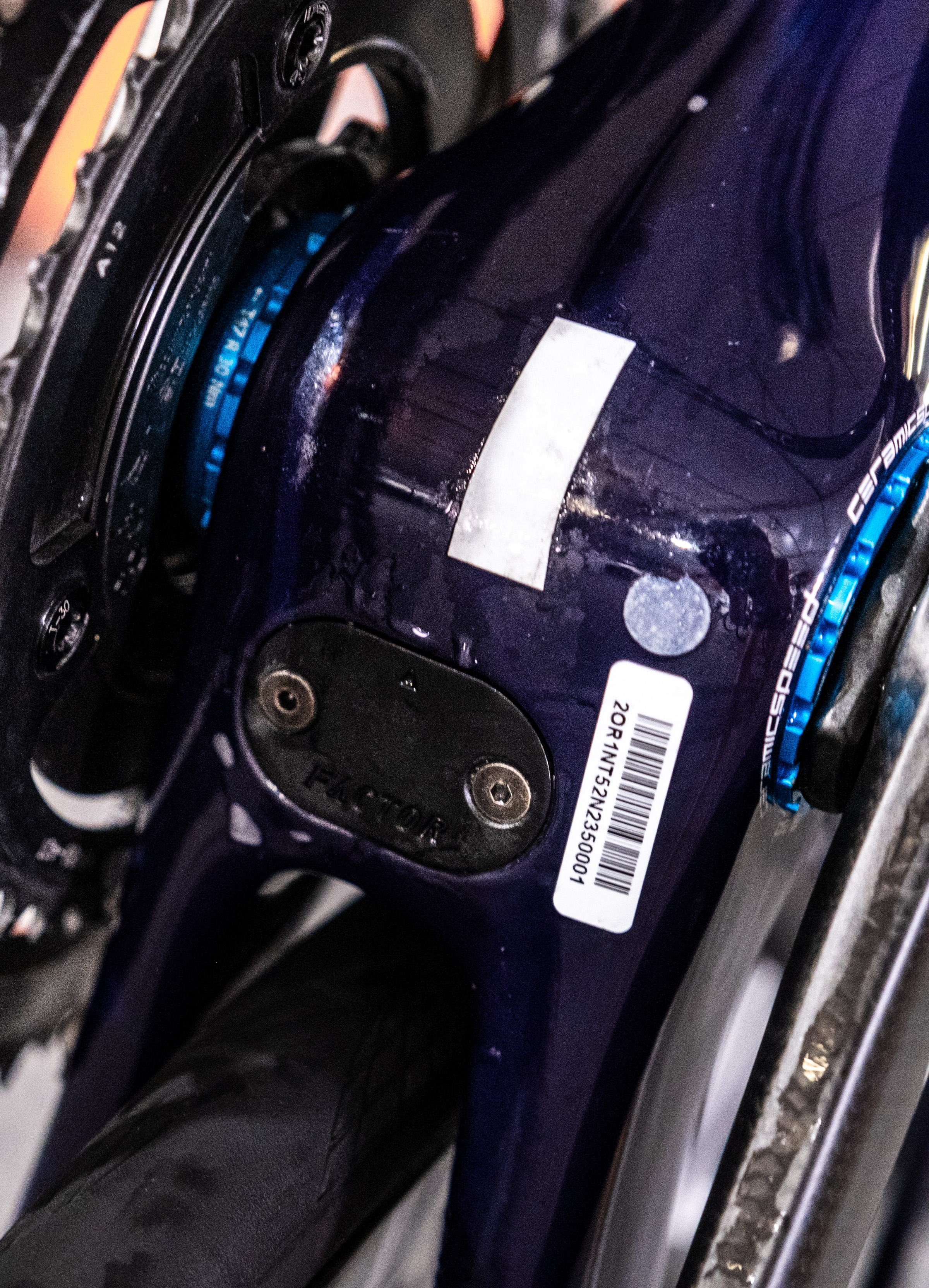
Onto that hidden chamber mentioned above...
According to the Israel Premier-Tech mechanic, this is for the battery.
After a momentary internal doubletake, we realise they were talking about the Shimano Dura-Ace Di2 groupset's battery, and not an admission of motor doping. Phew!
We didn't get a look inside, but it seems like a sensible place to put it, given the slightly lower centre of gravity it'll provide when compared to sticking it to the bottom of your seatpost (as many brands do). The same system is evident on the new Cannondale SuperSix Evo.
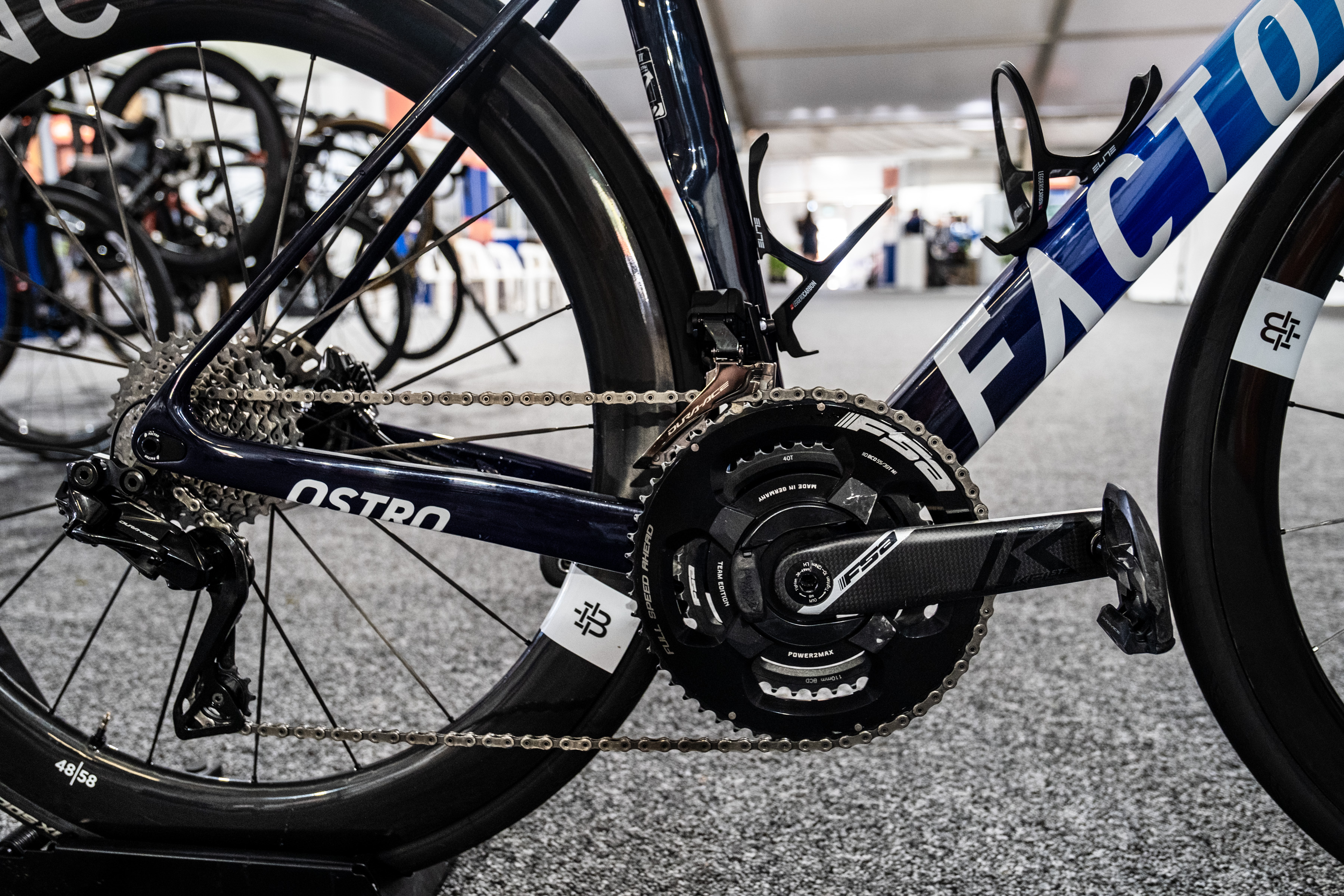
A final point on Clarke's bike for the 2024 season. His Israel Premier-Tech team have long used Shimano's Dura-Ace groupset. Notably, they are forced to pay for it, rather than get it via a sponsorship deal, but there's a good chance Factor foots that bill.
Regardless, the chainset and power meter isn't from Shimano itself, but rather FSA, and the power meter comes direct from Power2Max. Ready for the Down Under Classic criterium on Saturday night, the Aussie has a 55T chainring in place.

Josh is Associate Editor of Cyclingnews – leading our content on the best bikes, kit and the latest breaking tech stories from the pro peloton. He has been with us since the summer of 2019 and throughout that time he's covered everything from buyer's guides and deals to the latest tech news and reviews.
On the bike, Josh has been riding and racing for over 15 years. He started out racing cross country in his teens back when 26-inch wheels and triple chainsets were still mainstream, but he found favour in road racing in his early 20s, racing at a local and national level for Somerset-based Team Tor 2000. These days he rides indoors for convenience and fitness, and outdoors for fun on road, gravel, 'cross and cross-country bikes, the latter usually with his two dogs in tow.